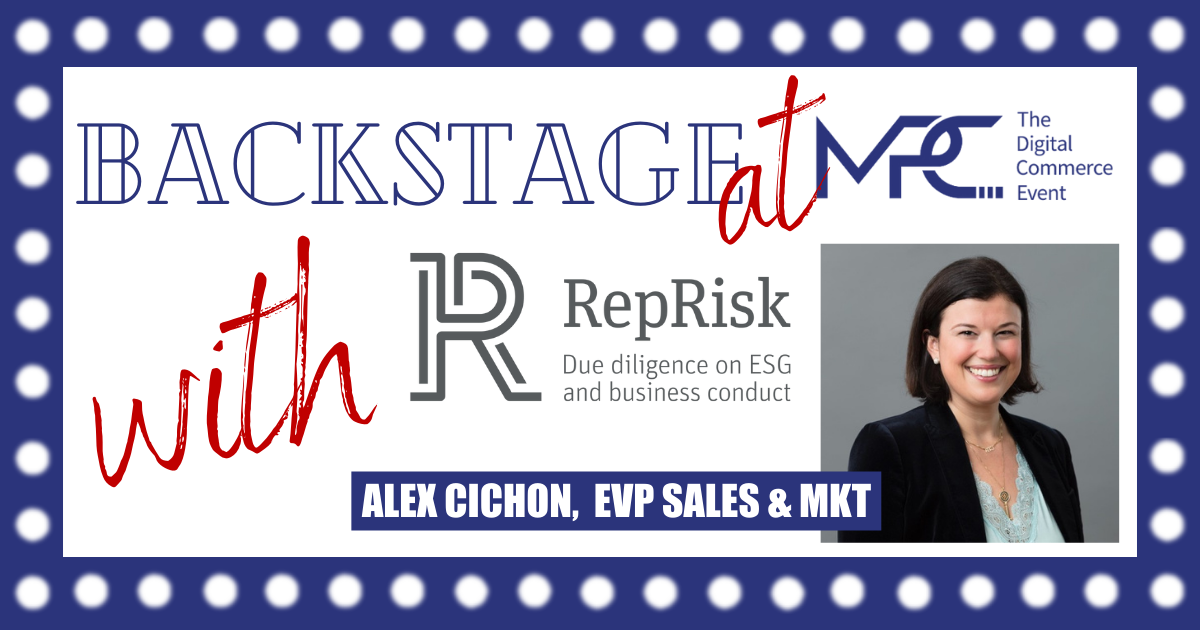The Net-Zero Banking Alliance (NZBA), comprising 98 members from 39 countries who collectively manage $66 trillion in assets, pledged to fight climate change by supporting net-zero emissions. At their inaugural meeting during the 2021 UN Climate Change Conference, members agreed to work together to prioritize areas of impact in greenhouse emissions and set near-term targets for reporting progress. Dale Laszig recently discussed NZBA with Alexandra Mihailescu Cichon, executive vice president of sales and marketing at RepRisk.
What impact do you anticipate the NetZero initiative to have on financial services?
We believe that the Alliance can have a big impact—when it comes to capital availability, movement and allocation, banks play a critical role. Banks also touch everything, essentially every sector in every country. Therefore, banks are a big lever and can have a big impact on decarbonization. Their policies have a real-world impact on business across the world and help raise the bar for how companies do business. The end result is what we all want: the decreased financing of activities that are the most destructive to the environment and to people.
Do you expect consumers will increasingly choose banks with sustainable economic best practices?
As ESG [environmental, social and governance] issues such as climate change receive more attention from the mainstream media and consumers are more attune to this, banks are continuing to find themselves in the crosshairs. From NGOs and investors to regulators and customers—banks are continuously being pressured to do a better job on ESG and sustainability.
What are some of the biggest challenges ahead for implementing this initiative?
The deadline of 2050 is commendable; however, it is still a long way away. There is a lot that can be done very quickly with data that is already available and has been available for the past 15 years. We encourage banks to take note of these resources, trusting reliable data to inform their decision-making on sustainable capital allocation.
How are you advising banks and financial institutions on adopting green banking and sustainable finance?
We work with more than 80 global and local banks for their due diligence and risk management processes. We enable systematic ESG risk assessments across their business lines, from lending to IPOs and advisory to trade, export, and project finance. In fact, RepRisk traces its roots to the investment and commercial banking industry and for the past 15 years, we have built a consistent dataset with a rules-based and transparent methodology for a clear use case: systematically identifying and assessing ESG risks related to any company and infrastructure project worldwide, across markets and sectors worldwide. Additional information about RepRisk is available at https://www.reprisk.com/
For additional information about the NetZero Banking Alliance, visit www.unepfi.org/net-zero-banking/
This interview originally appeared Tues., March 29, 2022, in The Green Sheet: http://www.greensheet.com/breakingnews.php?article_id=2683
 Alexandra Mihailescu Cichon
Alexandra Mihailescu Cichon
Executive Vice President Sales & Marketing
Sales and Marketing
Alexandra Mihailescu Cichon joined RepRisk in 2013 and is the Executive Vice President of Sales and Marketing. Over her tenure, she has established and led RepRisk’s globally distributed Sales, Partnerships, Client Relationship Management, Sales Operations, and Marketing & Communications teams.
Before joining RepRisk, Alexandra worked on the Global Sustainability Affairs team at Credit Suisse, focusing on environmental and social risk management, green business opportunities, corporate responsibility reporting, and employee engagement. Prior to this, she worked at the US headquarters of Mercedes-Benz, holding positions within brand marketing and business development.
Alexandra holds a Master’s in Business Administration (MBA) from the University of St. Gallen (HSG), in Switzerland, with an exchange semester at the HEC Paris (École des hautes études commerciales de Paris), in France. She holds a Bachelor’s degree in Psychology (honors) and a Certificate in International Studies from Rutgers University in New Brunswick, NJ, USA, as well as a Certificate in Executive Leadership from Cornell University.







